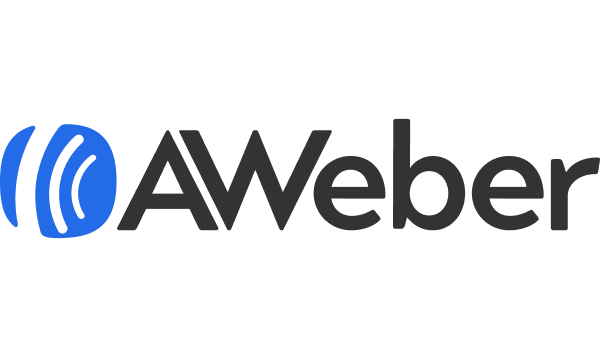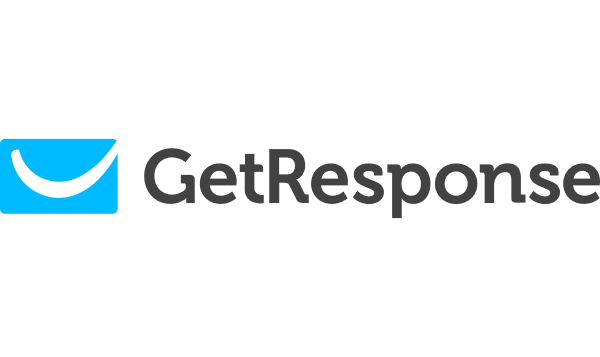AWeber vs GetResponse: Finding Your Email Marketing Match
Let’s face it — picking the right email marketing platform can make or break your customer connections. With countless options cluttering the marketplace, finding your perfect match often boils down to balancing simplicity, flexibility, and what your wallet can handle.
AWeber and GetResponse are two names you’ve probably heard tossed around in marketing circles. They’re quite different beasts when you look closer. AWeber has carved out its niche with affordability and no-fuss tools that won’t overwhelm beginners.
It’s become the go-to for small shops and solo entrepreneurs who don’t need fancy bells and whistles. GetResponse, meanwhile, shines with its advanced automation, built-in marketing goodies (think landing pages and webinars), and flexible connections — perfect for businesses ready to level up their game.
I’ll walk you through how these platforms stack up on pricing, features, user-friendliness, and actual performance, so you can figure out which one aligns better with your marketing vision and business needs.
AWeber vs GetResponse — Quick Comparison
Feature Overview
AWeber
GetResponse
Best For
Small businesses, solopreneurs, beginners
Growing businesses, marketers needing automation & tools
Pricing
Free plan + paid plans from $14.99/month
Free plan + paid plans from $19/month
Ease of Use
Very beginner-friendly, simple interface
User-friendly with more advanced tools
Value for Money
Great for basic email marketing needs
Strong all-in-one marketing toolkit
Strengths & Weaknesses
Overall Strengths
Overall Weaknesses
AWeber
Affordable, easy setup, good templates
Limited automation & advanced features
GetResponse
Powerful automation, built-in landing pages, webinar tools
Higher pricing at scale, learning curve for advanced features
AWeber vs GetResponse — Feature Comparison
AWeber
GetResponse
Email Campaigns
- Drag-and-drop editor
- Pre-designed templates
- AMP interactive emails
- RSS-to-email feeds
- Advanced email editor
- Pre-built templates
- Time-based & event-based sending
- Product recommendations
Automation
- Basic autoresponders
- Tag-based triggers
- Simple automated sequences
- Cart abandonment (paid plans)
- Visual automation builder
- Behavior-based workflows
- Conditional logic & tagging
- Multi-channel automation (email, SMS, web push)
Landing Pages & Forms
- Basic landing page builder
- Unlimited signup forms
- Popups and WordPress integrations
- Mobile-responsive pages
- Built-in landing page builder
- Webinars & signup forms
- Sales funnels & conversion tracking
- A/B testing for landing pages
Segmentation & Personalization
- Tag-based segmentation
- Basic personalization fields
- Subscriber activity filters
- Limited dynamic content
- Advanced audience segmentation
- Dynamic content personalization
- Behavioral tracking
- Custom fields & tags
Reporting & Analytics
- Basic campaign performance reports
- Open & click tracking
- Subscriber activity reports
- Sales tracking (integrations)
- In-depth analytics dashboard
- Funnel & conversion tracking
- Engagement & revenue reports
- Automation performance tracking
Integrations
- 750+ integrations (Shopify, WordPress, Zapier)
- API access
- Ecommerce plugin support
- Social media integrations
- 100+ native integrations
- Ecommerce tools (Shopify, WooCommerce)
- Webinars & CRM integrations
- API & Zapier access
AWeber
AWeber really hits the sweet spot for small businesses and beginners who need straightforward, affordable email marketing without overwhelming complexity. It delivers all the core essentials for standard campaigns — from the drag-and-drop editor to autoresponders and basic reporting.
Its no-nonsense approach, decent template collection, and predictable pricing make it ideal for marketers who value simplicity over complexity.
GetResponse
GetResponse, on the other hand, caters to businesses looking to leverage advanced marketing automation and multi-channel engagement. It’s packed with tools beyond just email — landing page building, sales funnels, webinar hosting, and multi-step automation workflows.
Yes, it’ll cost you more, but GetResponse offers solid value for businesses needing an all-in-one marketing platform to manage more sophisticated campaigns and customer journeys.
Pricing Face-Off: AWeber vs GetResponse
Subscriber Count
AWeber Pricing (Lite/Plus Plan)
GetResponse Pricing (Email Marketing Plan)
Key Differences
1,000
From $14.99/month
From $19/month
AWeber is more affordable; GetResponse includes basic automation.
2,500
From $29.99/month
From $29/month
Pricing is similar; GetResponse offers more built-in tools (landing pages, funnels).
5,000
From $49.99/month
From $54/month
AWeber stays budget-friendly; GetResponse provides advanced automation.
10,000
From $69.99/month
From $79/month
GetResponse supports multi-channel marketing; AWeber focuses on email basics.
25,000
From $149.99/month
From $174/month
AWeber remains cheaper; GetResponse adds webinars, SMS, and funnel tools.
The Bottom Line
AWeber consistently offers more wallet-friendly pricing across all subscriber levels, making it a smart pick for small businesses or marketers who just need straightforward email tools. Their plans scale predictably without unnecessary complications.
GetResponse costs a bit more at each tier but gives you access to a full suite of marketing tools — advanced automation, landing pages, sales funnels, and even webinar hosting.
You’re paying for that all-in-one capability, which makes sense for businesses wanting to centralize their marketing and run multi-channel campaigns from a single dashboard.
Free Plan Showdown: AWeber vs GetResponse
AWeber Free Plan
GetResponse Free Plan
Subscribers
Up to 500 subscribers
Up to 500 subscribers
Emails/Month
3,000 emails/month
Unlimited emails/month
Automation
Basic autoresponders only
No automation on free plan
Landing Pages/Forms
Unlimited landing pages & signup forms
1 landing page + signup forms
Branding
AWeber branding on emails & pages
GetResponse branding on emails & pages
Quick Take
AWeber’s free plan works well for beginners wanting to send regular newsletters or simple campaigns without automation headaches. You get 3,000 monthly emails, unlimited landing pages, and basic autoresponders — practical for small businesses just getting started.
GetResponse’s free plan lets you send unlimited emails but limits you to just one landing page and no automation features. It’s perfect for focusing on list-building and basic email broadcasts, but businesses wanting automation or multiple pages will need to upgrade.
Both free plans include company branding and limited support.
AWeber vs GetResponse — The Good, The Bad, and The Reality
AWeber
GetResponse
- Affordable pricing for beginners and small lists
- Unlimited email sends on all plans
- Easy-to-use email editor with pre-designed templates
- Excellent customer support (24/7 live chat)
- Built-in landing pages & signup forms
- Tagging and basic list management
- All-in-one marketing suite (email, automation, webinars)
- Advanced automation workflows with visual builder
- Built-in landing page and website builder
- Native ecommerce tools (product recommendations, abandoned cart recovery)
- SMS marketing and webinar hosting available
- Strong reporting & analytics features
- Limited advanced automation features
- Basic segmentation options compared to GetResponse
- No built-in CRM tools
- Less suited for complex ecommerce marketing
- Outdated template customization in some areas
- Fewer integrations compared to GetResponse
- Higher pricing at scale
- Free plan has limited features and lower send limits
- Learning curve for advanced features
- Some tools (webinars, automation) gated on higher plans
- Limited customer support on free plan
- Pay-per-contact pricing model
AWeber in Practice
AWeber excels for small businesses, solopreneurs, and beginners seeking affordable, easy-to-use email marketing. Its beauty lies in simplicity — users can quickly set up campaigns, manage lists, and create basic automations without feeling lost.
The clean interface, hundreds of templates, and straightforward pricing that grows with your subscriber list are definite pluses. However, the limited automation capabilities and basic reporting might not cut it for marketers craving advanced campaign control or in-depth analytics.
GetResponse in Action
GetResponse targets businesses needing more than just email tools. It positions itself as a comprehensive marketing platform with advanced automation, landing page builders, sales funnels, webinars, and multi-channel communication.
These features make it ideal for growing businesses, digital marketers, and ecommerce brands wanting to centralize their marketing. The catch? Many of these advanced tools require higher-tier plans, and the lack of automation in the free version might force you to upgrade sooner than planned.
AWeber vs GetResponse — User Ratings & Real Feedback
AWeber consistently earns praise for its simplicity, especially from beginners and small business owners. Users often highlight the clean interface, no-fuss setup, and intuitive email editor. GetResponse is also user-friendly but packs more advanced tools, which naturally takes a bit more time to fully explore.
AWeber keeps the learning curve minimal — perfect if you want to start sending emails quickly without deep marketing know-how. GetResponse offers more features like sales funnels, webinars, and automation workflows, which naturally means it takes longer to master, especially for those new to multi-channel marketing.
AWeber users appreciate the helpful customer support, easy setup process, and reliable deliverability. Common complaints center around basic automation limitations and reporting constraints.
GetResponse users value the all-in-one marketing approach, powerful automation options, and flexible design tools. The downsides? Some users mention certain features are locked behind higher-tier plans, and costs can climb quickly for larger subscriber lists.


